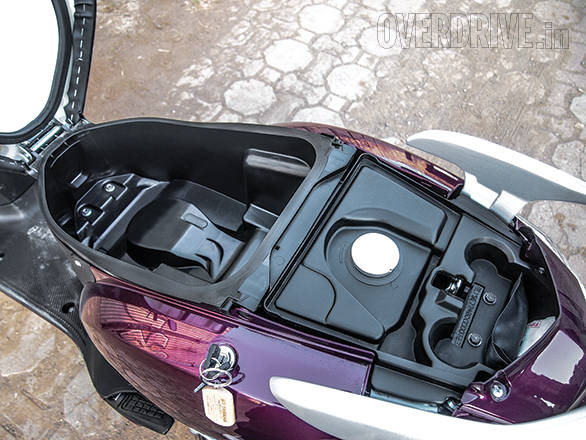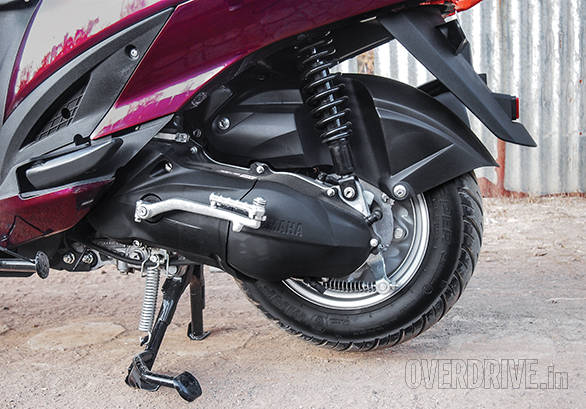2014 Yamaha Alpha India road test
After entering the lucrative Indian scooter market in 2012 with the Ray, a scooter targeting women, Yamaha gave Indian men a scooter to get excited about â€" the Ray-Z. Now in logical progression, they've launched the Alpha, a scooter targeted at the Indian family. It enters the same highly competitive market space as the Honda Activa, the Suzuki Access and the Hero Maestro to name a few. We spent a couple of days with the scooter to see how it's matured from its more boisterous beginnings.
Styling and designKeeping with the theme of being targeted at families, the Alpha has matured from the bold looks and sporty graphics of the Ray-Z to a relatively more mainstream look. The headlight has moved back to the more conventional location on the handlebar fairing and the lower front body work now sports less dramatic curves and creases. There's still enough DNA remaining from its siblings and it manages to look more striking than the competition.

The seat is a lot larger than the Ray and Ray-Z while seat height increases from 760 to 775mm and that has freed up more under seat storage, increasing from 15.5 litres to 21 litres. More than the competition but somehow it still doesn't hold a full faced helmet. The instruments are basic but well laid out and the switches are crisp in feel and overall build quality is good. The floor board is larger than the Ray and there is a parcel hook located conventionally under the front of the seat. The bike does miss out on a brake lock though, making it tricky to park on a slope.
Engine performance and efficiency
The Alpha uses the same running gear as the Ray and Ray-Z, and so is powered by the same 113cc single. It makes an identical 7.1PS at 7500rpm and 8.1Nm at 5000rpm. The engine feels pretty much the same as its siblings and the identical weight and power means the performance figures are also similar. The sprint to 60kmph is achieved in 10.5s while the family scoot tops out at 86.3kmph. It's not the fastest accelerating scooter in this segment but a family scooter is hardly going to be playing drag racer at the stop lights. What the Alpha does have on its side is a refined mill, just one of the many reasons that the Ray was our Scooter of The Year for 2013. It also features the throttle position sensor (TPS) equipped carburetor that debuted on the Ray-Z. It's responsible for optimizing ignition timing and helps with efficiency. In our tests it returned a respectable 47kmpl in the city and 59.2kmpl on the highway that gives it a very respectable 50.1kmpl overall.
Ride quality and handlingOne thing that we really liked with the Ray twins was their handling and agile feel on the move. At 104kg it's also one of the lightest in its class and this is evident in the ease at which it flicks through traffic. The telescopic forks and fairly firm suspension tuning of the Alpha gives it a very secure and stable feel in corners and under braking. The trade-off is that while it handles great, it's not as pliant a ride as the Activa or the Maestro, although not to the extent that it's uncomfortable over bad roads.
VerdictIf a conventional family scooter is meant to be practical with lots of space to carry the week's marketing, comfortable for short trips to the shops and easy on the pocket, then the Yamaha Alpha makes the cut. It retails at Rs 49,518 (ex-showroom Mumbai) and is a few thousands dearer than the Activa and the Maestro. You may get better value by picking from the competition, but if you do want something that is slightly more 'left field' then the attractive and sweet handling Alpha could be the scoot for you.